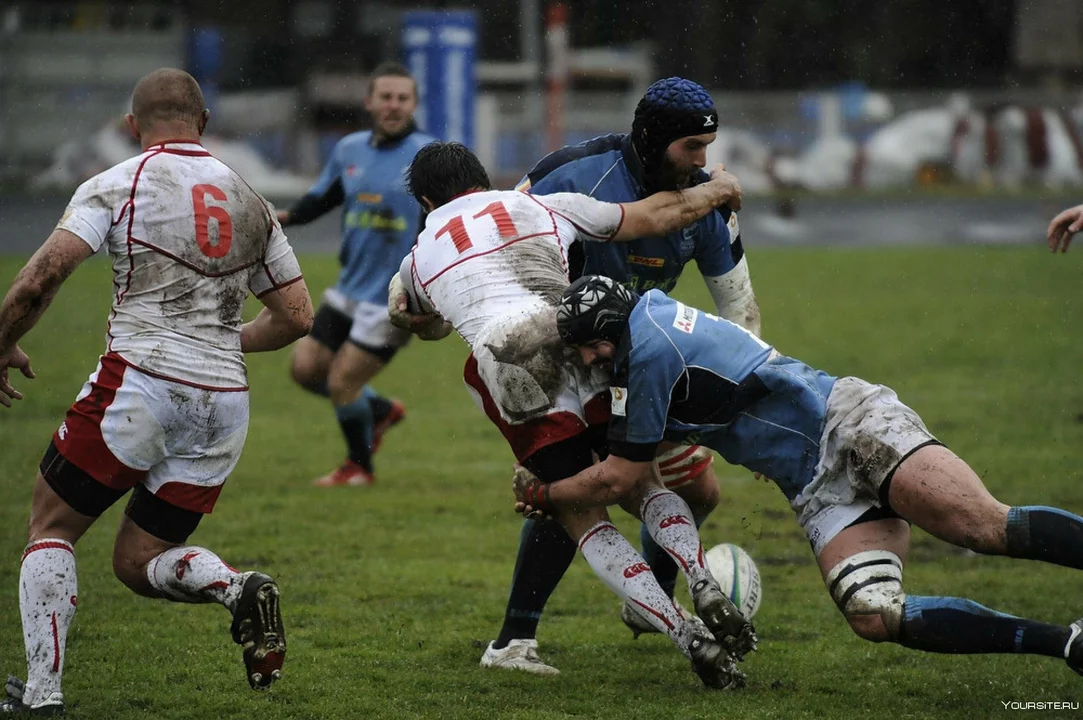Stocksbridge Rugby Club - Page 3
Can you play rugby if you are thin?
In my exploration of the topic, I found out that yes, you can absolutely play rugby if you're thin! Rugby is a game for all shapes and sizes, with different roles to suit different body types. Although it's a common misconception that you need to be big to play, speed and agility are also incredibly important in rugby. If you're thin, you might excel in positions that require quickness and finesse. So, don't let your physique deter you - rugby is a game where skill, strategy, and heart matter more than size.
Is rugby really as rough as it looks?
As a rugby enthusiast, I've always been asked, "Is rugby really as rough as it looks?" After watching numerous games and experiencing the sport firsthand, I believe that rugby is indeed a physically demanding and rough sport. However, it's important to note that there are strict rules in place to ensure player safety, and the players themselves are trained to tackle and play the game with skill and precision. So while rugby may appear rough on the surface, the sport is governed by a strong emphasis on safety and sportsmanship. Ultimately, it's the camaraderie and teamwork that make rugby such a gratifying and enjoyable sport for both players and fans alike.
Who will win the rights to host the Rugby World Cup 2023?
I've been following the race to host the Rugby World Cup 2023 closely, and it seems to be a tight competition. Several countries have put forward their bids, and each has its own unique appeal. Personally, I think Ireland, France, and South Africa are the frontrunners, with each offering great facilities and passionate fan bases. However, it's really anyone's game at this point. I can't wait to see which country ends up winning the hosting rights for this prestigious event!
Why do rugby players need power?
Rugby is a physically demanding sport that requires players to have immense strength and power. Power is essential to success in rugby, as it can be used to surpass opponents, make more dynamic moves, and increase overall performance. Power also helps with tackling, scrummaging, and defensive tactics, making it an essential component of a successful rugby player. To gain power, rugby players must focus on strength training, speed drills and agility exercises to build their strength and power. Ultimately, power helps rugby players become more effective and efficient on the field, leading to improved performance and greater success.
What does the 6 nations rugby man of the match receive?
The 6 Nations rugby man of the match is awarded a prestigious accolade for their outstanding performance on the pitch. As a reward for their impressive display, the lucky recipient of the award is presented with a special trophy and a cash prize. Additionally, the winner is treated to a celebratory and memorable night out with their teammates, family, and friends. The man of the match is honored with a unique experience that will stay with them forever and serve as a reminder of their hard work and dedication to the sport.
Why did England lose to South Africa in the rugby final?
England's defeat to South Africa in the 2019 Rugby World Cup Final was a major upset in the sport. The Springboks outplayed England in every aspect of the game, from scrum and line-outs, to the speed and skill of their backline. South Africa's superior physicality and determination to win was too much for England, who were unable to keep up with their opponents' pace and precision. The loss was a big disappointment for the English team, who had been tipped to win the tournament, but were ultimately outclassed by the South African side. England will be hoping to learn from this loss and bounce back in the next World Cup.
How important are German rugby teams?
German rugby teams have become an increasingly important part of the sport's international landscape in recent years. As a result, their performances are now being watched more closely than ever before. German teams have had a great deal of success in both the domestic and international arenas. In the domestic leagues, they have won multiple titles and are often seen as a top-tier team. On the international stage, German teams have made deep runs in the European Rugby Championship and have even threatened to make a run at the World Cup. German rugby teams are quickly becoming a force to be reckoned with and are certainly a team to watch.
What makes football more popular than rugby?
Football is by far the most popular team sport in the world, and its popularity is increasing day by day. One of the main reasons behind this is its accessibility and simplicity. Football is easy to pick up and play, and it doesn't require any expensive equipment. The rules of the game are also very straightforward, which makes it appealing to beginners. In contrast, rugby is much more complex and difficult to learn and requires expensive equipment and protective gear. Football also has a much larger fan base, and its games are broadcasted all over the world, unlike rugby which is mostly confined to certain regions. Additionally, football has a much longer history than rugby, giving it more of an advantage in terms of legacy and tradition.
Why did the Rugby League and Union split?
The Rugby League and Union split in 1895 due to a disagreement over the issue of payment for players. Players who had been playing the game for free were offered payments for their services, which some considered to be a breach of amateurism. This sparked a split between the two camps, resulting in the creation of separate rugby league and union bodies. The league was intended to be a professional competition, while union remained strictly amateur. The split was also fueled by class tensions between the traditional working-class north and the wealthier south, as well as a desire to create a faster and more exciting game. The differences between the two codes remain today, with league being the more popular and lucrative form of rugby.
In Rugby Union why do home teams often wear their away strip?
Rugby Union teams often wear their away strip when playing at home, as there is a long-standing tradition in the sport of not wearing the same kit in consecutive matches. This tradition is thought to have come from the amateur days of the sport, when teams would often not have enough of the same kit to go around. Furthermore, this tradition is thought to have been beneficial to the away team in the past, as they would have been more easily identifiable to the referee and the crowd. To this day, this tradition is still observed in many international and domestic competitions, allowing teams to express their individuality and distinctiveness.









